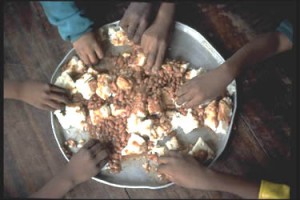 I’ve always wanted to write a book on economics (one that is easy to understand). When I was in college, I thought economics was so important—but the textbooks were so hard to comprehend. I remember when my children were growing up, I tried to teach them supply and demand by trading baseball cards, and it worked pretty well. Why didn’t they pull out the baseball cards when I was at Texas Tech? But writing this book is one of those things that got left behind in life. But something happened recently that made me rethink writing the book. It probably won’t happen, but if it does, I will start the book with the following story.
I’ve always wanted to write a book on economics (one that is easy to understand). When I was in college, I thought economics was so important—but the textbooks were so hard to comprehend. I remember when my children were growing up, I tried to teach them supply and demand by trading baseball cards, and it worked pretty well. Why didn’t they pull out the baseball cards when I was at Texas Tech? But writing this book is one of those things that got left behind in life. But something happened recently that made me rethink writing the book. It probably won’t happen, but if it does, I will start the book with the following story.
Recently, I was preaching in Kenya where they are having the immense drought and food crisis. After our church gathering, we decided that we would feed everyone. Since we announced it, there obviously was a huge crowd. The service lasted a little over four hours that meant everyone was getting more than ready for the food.
Since I was the preacher (and I had paid for the food), everyone insisted that I was first in line. I tried to position myself differently, but they would have it no other way. There was so much food. People were ecstatic because so many had not eaten in a long time. When I led the way, I decided that I would serve myself because I really didn’t need that much and not everything was my personal favorite. So I started putting some small portions on my plate. Then one of the women who was serving took my plate away from me. She was upset that I was getting enough food. So she and another lady started piling the food on my plate. I could barely carry the plate with the food heaping over the sides.
I sat down and started eating. There was no way in the world I could eat it all. It was full of ugali that is so filling, and I finally couldn’t stuff anymore into my mouth. But I had to eat it all. Why? Didn’t your mother always tell you to finish your plate because people were starving in Africa? But I just couldn’t do it. And I didn’t want to leave food on my plate. So when I saw a lady walking by, in a sneaky way I asked her if she could take my plate. She seemed more than happy to do so.
Then, I started wondering what was going to happen to my food. I hated to see it thrown away in a drought. So I followed her. She went outside. And there beside the school was a huge line of little orphan kids jumping up and down. They were all trying to work their way up to my plate and reach in grabbing some of my leftovers. It would be the only food they would get for maybe a long time. Then I thought back about my huge plate of food.
Here’s what I learned. If you consume less, there is more for others.
Maybe that is God’s economics. If I ever write the book, I think I will begin here even before I get to baseball cards.


Wow, what a new perspective. I would read the book!